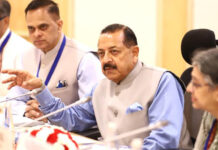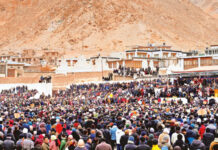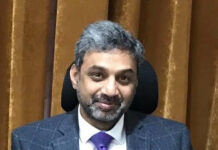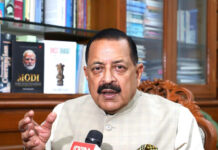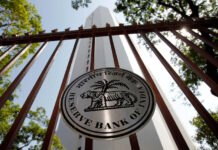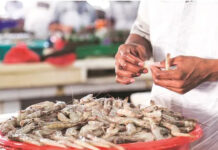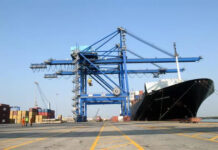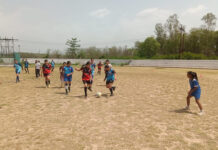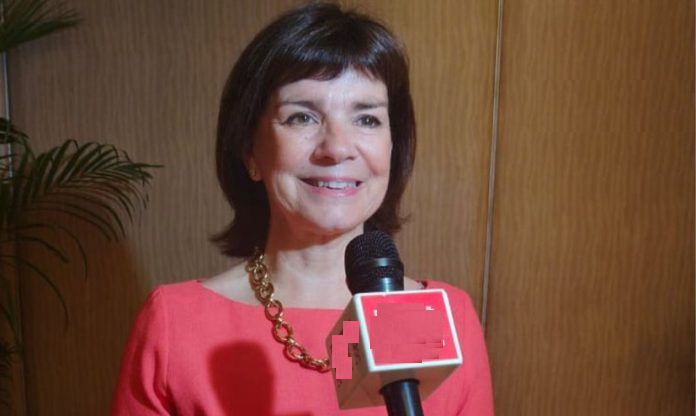DH NEWS SERVICE
New Delhi, JUNE 3
Describing it as an “incredibly resilient sector”, president of UK-based World Travel and Tourism Council (WTTC), Julia Simpson, on Tuesday expressed optimism about the revival of Jammu and Kashmir tourism that has suffered a huge hit in the wake of the Pahalgam attack. During an interaction here, she also said while there is a need for an “appropriate round of caution”, travellers who have loyally chosen Kashmir as a destination and have been coming to India, “I think, they are going to continue to come”.
Simpson, also the CEO of the London-based tourism body, shared some of the projected figures for the Indian tourism sector for 2025 and the 10-year forecast for 2035 in a presentation. She also gave some related insights later in an interaction with PTI Videos on the sidelines of the event.
She underlined the recovery made in the Indian tourism sector in the last few years post-Covid pandemic, and asserted that the “future does look very bright”.
Asked if the Pahalgam terror attack will cast a shadow on this tourism recovery trajectory in India, Simpson said the “situation we’re seeing here in India is certainly being stabilised, which is always a good sign”.
She underlined the resilient nature of the sector and said people were apprehensive that travellers would not go to the Middle East after the Israel-Gaza conflict or would not travel to Europe after the Russia-Ukraine conflict, but people are travelling to the Middle East and Europe.
The WTTC CEO emphasised the current geopolitical anxieties and recalled the terror attack in Kashmir’s Pahalgam on April 22.
“…we obviously have had a tragic event here in India, but we are seeing wars globally. There’s a lot of… and I always say when I talk about travel and tourism, in the concept …and conflict, first of all, we have to remember that there are real human beings and victims who get caught up in these horrendous events,” she said.
“But what I will say, travel and tourism is very, very resilient. Travellers are very sophisticated,” Simpson said.
In the Pahalgam attack, 26 people, mostly tourists, including a Nepalese national, were killed while holidaying at the scenic Baisaran Valley.
On the steps being taken by the government authorities in India to rebuild tourism and restore peace and security, she invoked the leadership of the country and underlined that things are really being “managed very well”.
“I mean, obviously we want people to have deep concern about what’s happening… You know, it’s sort of one day’s media clippings, and then people who are loyal to Kashmir and coming to India, I think, are going to continue to come.
“So, I feel very confident that while there is a need to have an appropriate round of caution, I do not think overall it’s going to impact travel and tourism,” the WTTC chief said.
During her interaction with PTI Videos, she termed travel and tourism as an “incredibly resilient sector”.
“While these are personal tragedies for the people that are involved, what you tend to see is that travel and tourism remains very, very strong, and it will recover very, very quickly,” she said.
“They (travellers) obviously take advice from their governments about where it is safe to travel, but generally, these situations are resolved, and people start travelling again quite quickly,” Simpson said.
Jammu and Kashmir Chief Minister Omar Abdullah is also endeavouring for the revival of tourism in the Valley, leading from the front as he held a meeting of the council of ministers at a resort in south Kashmir’s Pahalgam in May, seeking to rebuild confidence of tourists.
Jyotsna Suri, Chairperson and Managing Director, The Lalit Suri Hospitality Group, also expressed optimism about the revival of tourism in Jammu and Kashmir after the heavy impact on it post the Pahalgam attack.
“Kashmir has had its highs and lows for the longest time; it’s not new. And I can speak from experience, because we’ve been there for 25 years now, and there were times when, at a stretch of about three to four months, we would have a single guest in the hotel. But we didn’t stop, and we continued,” she said.
Now, what has happened in Pahalgam is “so unfortunate”, but people will go back.
“Jammu and Kashmir is taking it very seriously, led by the chief minister himself, and, more importantly, the Centre, the prime minister, the home minister, all of them are making an effort… sending out a very positive message that, yes, what has happened is awful, it’s terrible, and we grieve those lives that have gone, but it will come back. Tourism will come back to Kashmir,” the CMD of the luxury hospitality group said.
Set up in 1980, WTTC says its mission is to maximise the inclusive and sustainable growth potential of the travel and tourism sector through global partnerships.
Established over 20 years ago, the World Travel and Tourism Council, India Initiative (WTTCII) works in conjunction with WTTC.
An MoU between WTTC and WTTCII was also signed on the occasion.
Suri, also vice chairperson of WTTCII, said, “I am very sure Kashmir will come back with a big bounce once again”.
She recalled the terror attack and its aftermath that impacted the rest of the country as well, saying it was not just Kashmir, but Chandigarh as well, where blackouts happened later, owing to its proximity to Amritsar, also affected.
“Again, in Mumbai and Goa, because of proximity to Karachi, there was an impact (on the sector),” Suri said, pointing to hotel booking cancellations by many tourists.
Home News International Tourism resilient sector, international visitors willreturn to Kashmir: WTTC CEO on Pahalgam...


